- Home
- Michael Scott
The Ballad of Black Hawk and Billy the Kid
The Ballad of Black Hawk and Billy the Kid Read online
This is a work of fiction. All incidents and dialogue, and all characters with the exception of some well-known historical and public figures, are products of the author’s imagination and are not to be construed as real. Where real-life historical or public figures appear, the situations, incidents, and dialogues concerning those persons are fictional and are not intended to depict actual events or to change the fictional nature of the work. In all other respects, any resemblance to persons living or dead is entirely coincidental.
Text copyright © 2021 by Michael Scott
Cover art used under license from Shutterstock.com
Cover design by Regina Flath
All rights reserved. Published in the United States by Delacorte Press, an imprint of Random House Children’s Books, a division of Penguin Random House LLC, New York.
Delacorte Press is a registered trademark and the colophon is a trademark of Penguin Random House LLC.
Visit us on the Web! GetUnderlined.com
Educators and librarians, for a variety of teaching tools, visit us at RHTeachersLibrarians.com
Library of Congress Cataloging-in-Publication Data is available upon request.
Ebook ISBN 9780449819265
Random House Children’s Books supports the First Amendment and celebrates the right to read.
Penguin Random House LLC supports copyright. Copyright fuels creativity, encourages diverse voices, promotes free speech, and creates a vibrant culture. Thank you for buying an authorized edition of this book and for complying with copyright laws by not reproducing, scanning, or distributing any part in any form without permission. You are supporting writers and allowing Penguin Random House to publish books for every reader.
ep_prh_5.7.1_c0_r0
Contents
Cover
Title Page
Copyright
Encrypted Email—512-Bit Encryption
Chapter 1
Chapter 2
Chapter 3
Chapter 4
Chapter 5
Chapter 6
Chapter 7
Chapter 8
Chapter 9
Chapter 10
About the Author
ENCRYPTED EMAIL—512-BIT ENCRYPTION
From: Billy the Kid
To: Niccolò Machiavelli
Subject: So I took your advice…
Niccolò,
Thank you for the email. Next time, do me a favor, use a shorter password for the encryption, and preferably one in English. Took forever to input it on my phone.
I am healing remarkably quickly, but I will probably not be able to put weight on my leg for another month. The docs keep telling me I’m lucky I didn’t lose it; I reckon I’m lucky I still have my head!
When Black Hawk asked for my help, all he said was that the crystal skull we’d be stealing from beneath the Pryor Mountains was guarded by a few little people. My parents, as you know, were both Irish, and my mother often spoke about the Little People of her homeland, and they sounded like good-natured, humorous sorts. So I sort of thought these would be like an American Leprechaun and, I mean, how scary does that sound?
These particular Little People were Nirumbee: twenty-four inches of ugliness, with the strength of ten men. The one who broke my leg picked me up like I weighed nothing and threw me from one side of a river to the other. Now, you and I have seen some things, and I still have nightmares about the Old Spider, but I have a feeling these Nirumbee would terrify Aerop-Enap herself.
Black Hawk carried me back to the van and drove me to an emergency room in Billings. We said I’d fallen while climbing. Not sure the doc believed us. He was Native American—Crow, I think—and I’m sure he recognized the little bone-tipped arrows sticking out of Black Hawk’s backpack.
Do I need to tell you that we didn’t get the crystal skull? Do I need to add that I’m not going back to try again? Next time, Marethyu can go get it himself; I’m done with the Little People!
I’m going to take your advice and spend the next couple of weeks learning a few more languages. I’ll start with Italian so you can send me even more incomprehensible passwords.
I’m also going to attempt to keep a diary, as you suggested. I’ve tried a couple of times over the years, but always gave up because, well, I always reckoned nothing really exciting ever happened to me. But then I got to thinking about it, and I remembered that time I became immortal, of course…and that time I helped fight Scathach’s old boyfriend in Vegas…and when Virginia Dare and I went into the Grand Canyon…and when…
So, okay, you win; I’ve had some exciting times.
These last weeks have given me time to think. This is probably the longest I’ve ever stayed in one place. Black Hawk comes every day (I think he feels guilty because he got me into this mess), and we’ve taken to reminiscing about our adventures. Talking to him reminded me about the wild times I’ve had, and you’re right, maybe I should write them down before someone else does. Shakespeare, probably, though Palamedes told Black Hawk recently that the bard’s got writer’s block and hasn’t written anything new in years. Even while I was still alive, there were some crazy lies told about me, and since I died in 1881, a whole industry has grown up around my name. Someone sold a picture of me recently for over two million dollars—and it wasn’t even a very good picture.
Black Hawk told me some stuff I never knew about him. Did you know he wrote a biography and had a wife, Singing Bird, and they had five children? You probably did, you’ve got everything in those secret files of yours, but I’ve been hanging around with Ma-ka-tai-me-she-kia-kiak since 1880 and this was the first I’d heard about that.
I was talking to Black Hawk a couple of days ago about keeping a diary, and he thought it was a great idea. I mentioned that I hate writing because my handwriting is illegible, even to me, and I’ve destroyed too many keyboards by stabbing too hard at the keys. He suggested I record myself. He’s got a great app on his phone that turns spoken words into text. You know, when I was growing up, we’d have said that was magic, but I suppose a lot of what we do today would seem like magic to a previous generation. Black Hawk came over yesterday and we tried it out. It was a lot of fun; even brought back some stuff I’d forgotten. We started talking about the first time we met. I saved his life, but he sort of disputes that. Claims that he didn’t need saving.
I’ve attached the audio file to this email. It’s mostly me talking, but the app recorded Black Hawk’s interruptions as well. I was going to delete them, but I couldn’t work that out and in the end I decided to leave them in.
I’ll come over to France and visit as soon as I can. It would be nice to see Flamel’s house, though I’m not too keen on the creepy catacombs, so I’ll take a pass on that. I think I’ve had enough tunnels and caves for a while.
I really want to visit Disneyland, Paris! They’ve got Frontierland and a Big Thunder Mountain ride I need to go on. I also want to check out Buffalo Bill’s Wild West Show and see how authentic it is. I saw the real thing.
Scathach sends her regards. She called by to see how I was doing, brought me some fruit and a great pair of boots, made from some extinct dinosaur skin. (The last pair were cut off me in the hospital.) She’s living down in Taos now. She looks well. Actually, she looks exactly the same as she’s always looked.
William Bonney
Bored, in San Francisco
attached mp3 & transcribed pdf
1
Billy: Is this on? So what do I do, just talk?
Black Hawk: Yes, Billy, I’ve hit record. You just talk as normal. The app will record you and then turn your speech to text.
Billy: That’s weird.
Black Hawk: Billy, you broke your leg when you were thrown thirty feet by an eighteen-inch-tall Nirumbee when we tried to steal their sacred crystal skull. Now, that’s weird!
Billy: He was twenty-four inches. A giant of a Nirumbee. Real muscular.
Black Hawk: Eighteen inches and real skinny.
Billy: Okay. So, what will I talk about?
Black Hawk: Yesterday, we were chatting about how we first met.
Billy: Oh, that’s a great place to start. I first met you in the fall of 1880.
Black Hawk: That’s right, about seven months before you died.
Billy: My mother always told me I was born on September 17, 1859, and baptized on September 28, but my father claimed that I was born late in November. Though I never really knew my father, and my mother said he was a terrible liar, so I’m inclined to believe her. Since this story starts in November of 1880, I was twenty-one years old by either reckoning.
I was living in Fort Sumner, New Mexico, doing whatever I could to earn a living and, a lot of what I was doing was not entirely legal. I was mostly rustling cattle. Although the cattle ranches were huge, with thousands of head of cattle, the ranchers didn’t exactly look the other way when a few steers went missing. I wasn’t too scared when they hired private detectives to hunt me down, but in November 1880, Pat Garrett was elected sheriff of Lincoln County. I knew Garrett when he worked as a barman in Fort Sumner, and we got along well enough; however, he was a ruthless and dangerous man. People said we were friends, but that was not true; I think that was a story he made up.
I’d heard he was putting together a posse to come after me and a few of the others in the loose gang I rode with at the time, so I decided it would be healthier to—
Black Hawk: Billy, I’m sure all this is fascinating, but right now I’m getting bored. Get to the part where we meet.
Billy: In the summer of that year, I came into possession of a treasure map.
I know, I know. I can’t count the number of stories I’d heard about hidden treasure and lost silver mines, Spanish gold, and even pirate treasure. Barely a month went by without some new wild tale of lost cities and secret caves cropping up. But there was sort of a grain of truth to those stories. Every now and again you’d meet an old prospector who’d come into town with a bar of gold or a chunk of jewelry that was clearly ancient. Everyone in New Mexico knew about the fabled Seven Cities of Cibola, which is supposed to be somewhere around the Zuni Pueblo. And that’s a real place; I’ve been there.
Black Hawk: When you say you came into possession of a treasure map…
Billy: No, I didn’t steal it. No, sir. I bought it fair and square from a Mescalero Apache friend of mine. Traded two horses and three steers for it. It was the first and indeed the only treasure map I ever bought. Most maps of that time came on parchment or leather, or even bits of wood. The modern ones were on paper, of course. This one was different: it was on a wafer-thin sheet of silver. That’s what convinced me it was real. It was so flexible it could be rolled into a tube. I knew the moment I laid eyes on it that I had to have it. Besides, I reckoned that even if the map turned out to be worthless, I could sell it for the value of the metal.
When the deal was done, and the Apache was riding away with the traded horses and steers, he revealed that the map was cursed. Everyone who’d ever possessed it had had nothing but bad luck, he said. Then, because he was a boastful sort, he added that he would have sold the map for just one horse or maybe two steers, so he reckoned he’d done well on the deal. I didn’t begrudge the extra horses or cattle; I knew I’d bought the map cheaply. I thought I could interpret some of the scratchings and icons on the metal: a series of ragged humps had to be mountains, a curling twist was clearly a river.
I spent months poring over that map. I was careful not to show it to any of the others I associated with; none of them were what you might call trustworthy. I’ve no doubt that they would have laughed at the very idea of a treasure map, but the silver sheet itself was worth some money, and they’d have shot me down for that.
I spoke to every prospector who came into town and showed them a copy of the map I’d traced from the silver page. I wasn’t going to go flashing around the original. A few thought they recognized it, but every single one of them pointed to a different place, all across the South and West.
The year rolled on into late summer, and just when I was beginning to give up and was starting to think about melting down the metal sheet, a stranger rode into Fort Sumner.
I was sitting in a corner of the bar with a bunch of old army charts and maps, looking for anything even vaguely similar to the markings on the silver map. Sometimes I’d find a line of mountains that almost matched, but there’d be no curl of river. Or I’d find a river that curled just right, but there’d be no corresponding mountains. Also, I’d come to realize that I had no idea just how old the map was. Maybe it was hundreds or even thousands of years old, and I guessed that the mountains and rivers would have looked different back then. I had no idea if mountains could change shape, but I knew rivers twisted and curled into different paths depending on the seasons, and sudden floods could create entirely new waterways.
Raised voices distracted me and I looked up.
A fight in the bar was not unusual. Hardly a day went by without some disagreement or argument. Drink, gambling, politics, and money were the usual causes. But what caught my attention was that one of the voices was female. And this was not the voice of a refined woman: this was a raw, rasping snap, and each sentence was filled with cusswords in at least three languages and two Native American dialects.
I looked at the figure leaning back against the bar with elbows resting on the unpolished wood. From sight alone, it was not immediately apparent that it was a woman. Her face was tanned a deep leather, etched with lines, her cheeks speckled with broken veins, and the corners of her thin-lipped mouth were downturned, giving her a permanently disappointed expression. It was impossible to guess her age: she’d lived hard and could have been anywhere from thirty to fifty. The short, stocky figure was dressed in stained leather and ragged buckskin, with down-at-heel boots caked in mud and a hat that looked like it had been sat on more than once. What caught my attention was the bullwhip coiled around her shoulder and a .44-caliber Colt 1860 army revolver worn high on her right hip, with the butt facing forward. Gunfighters carry their guns that way; while you’re watching their right hand, they can reach across with their left and draw and shoot in one quick movement. Also, if you’re sitting in a wagon with the reins in your right hand, you’ll wear your gun high and butt out, so you can quickly get to it. The gun was curious; I use the more modern version, a seven-year-old .45-caliber Colt 1873, and I wondered why someone would carry a twenty-year-old weapon.
She caught me watching and turned her full attention on me. “What are you looking at?” she demanded. I knew her type. She was one of those people who loved to fight. All she needed was an excuse. And if she couldn’t find one, then she’d make one. Bars across the West were full of people like that. So were the graveyards.
The half dozen people in the bar began to sidle toward the doors. If there was going to be gunplay, they did not want to be around to catch a stray bullet. Within moments, we were the only two left.
The woman took in the empty bar, and I watched how she eased open her ragged coat to give herself access to her weapon. What she didn’t know was that I’d already gotten my gun in my hand and was pointing it at her from beneath the table.
“Are they afraid of you or afraid of me?” she asked.
“Afraid of getting themselves killed. Always wise to put as much distance as you can between yourself and a shootist.”
“You think I’m a gunfighter?” She sounded almost pleased at the idea.
“You’re carrying an interesting gun, and wearing it like someone who knows how to use it,” I noted.
“I know how to use it. And this gun was a gift to me from a man I loved.”
There was the slightest catch in her voice, and I guessed that the man was no longer alive.
“He knew his guns,” I said.
“He surely did,” she answered proudly, and in that instant her entire demeanor changed. “We’ll drink to his memory,” she said, reaching behind the bar to grab a bottle and two glasses.
Now, I tried to have a bath once a month, whether I needed it or not, but when the woman pushed in beside me, she enfolded me in a stink that was eye-watering in its intensity, a combination of human, mule, badly cured leather, and maybe half a dozen other odors I could not identify.
She sat facing the door, shrugged the whip off her shoulder, and dropped the heavy gun on the table alongside the glasses. “You can look at it if you wish.”
And while the woman was in need of a bath—or three—and her clothes were filthy and her boots stank of horse dung, the gun was pristine. It might have been twenty years old, but it showed very little wear, except that the walnut grips were polished to a high shine. “That’s a really fine piece of work,” I told her. “I see the original cap-and-ball has been converted to fire modern bullets.”
“My husband had that conversion done maybe eight years ago.”
“You talk about him as if he’s no longer with us,” I said carefully.
“He’s not,” she said with a terrible rage in her voice, and I knew immediately that he hadn’t died in his own bed of natural causes.

 The Warlock
The Warlock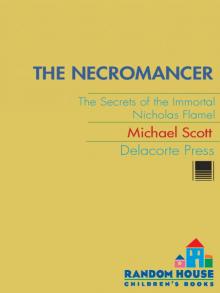 The Necromancer
The Necromancer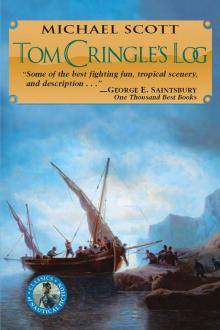 Tom Cringle's Log
Tom Cringle's Log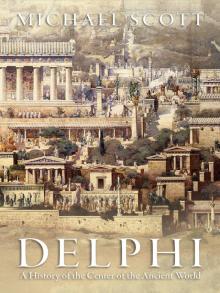 Delphi
Delphi The Magician
The Magician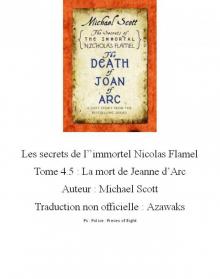 La mort de Jeanne d'Arc (trad. privee)
La mort de Jeanne d'Arc (trad. privee)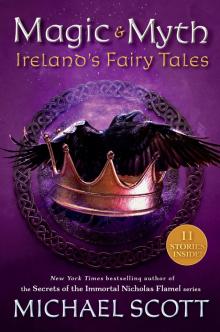 Magic and Myth
Magic and Myth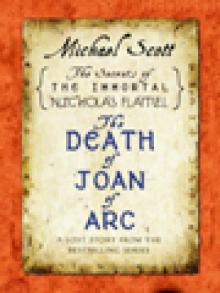 The Death of Joan of Arc
The Death of Joan of Arc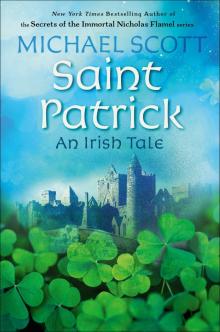 Saint Patrick
Saint Patrick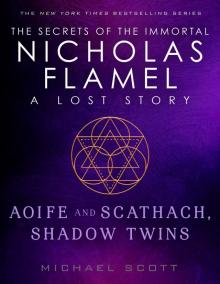 Aoife and Scathach, Shadow Twins
Aoife and Scathach, Shadow Twins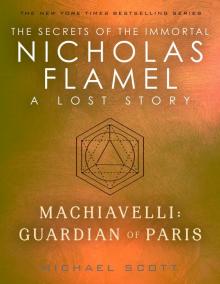 Machiavelli
Machiavelli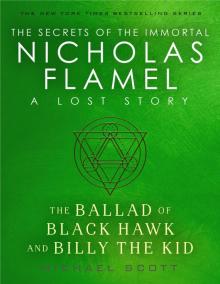 The Ballad of Black Hawk and Billy the Kid
The Ballad of Black Hawk and Billy the Kid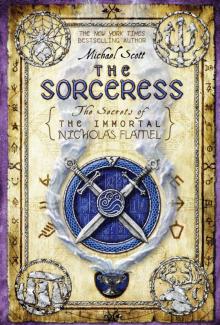 The Sorceress
The Sorceress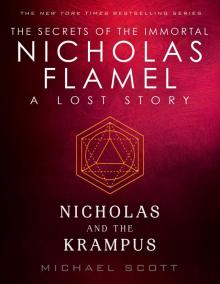 Nicholas and the Krampus
Nicholas and the Krampus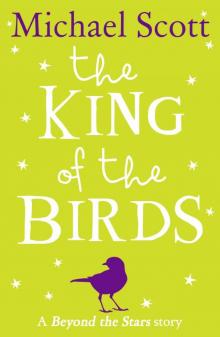 The King of the Birds
The King of the Birds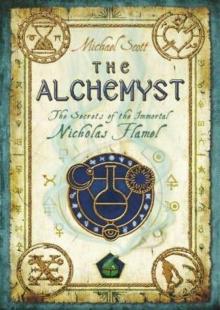 Nicholas Flamel 1 - The Alchemyst sotinf-1
Nicholas Flamel 1 - The Alchemyst sotinf-1 Shakespeare- a Complete Introduction
Shakespeare- a Complete Introduction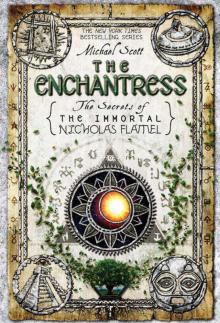 06 The Enchantress
06 The Enchantress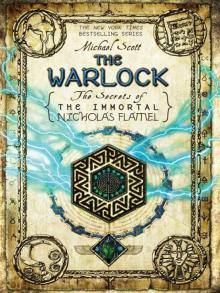 05 The Warlock
05 The Warlock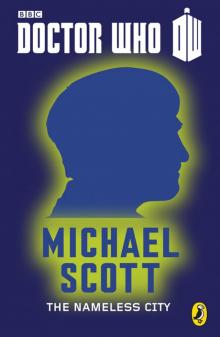 The Nameless City
The Nameless City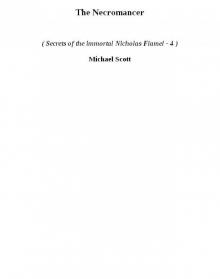 The Necromancer sotinf-4
The Necromancer sotinf-4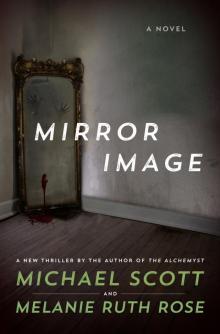 Mirror Image
Mirror Image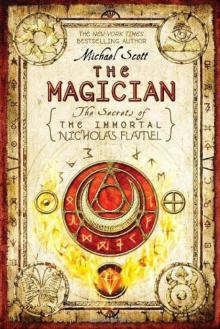 Nicholas Flamel 2 - The Magician sotinf-2
Nicholas Flamel 2 - The Magician sotinf-2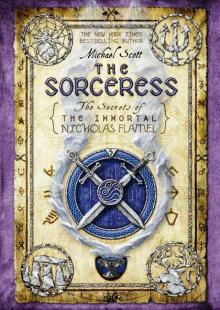 The Sorceress sotinf-3
The Sorceress sotinf-3